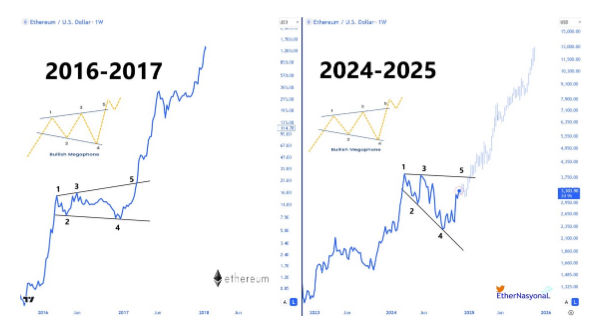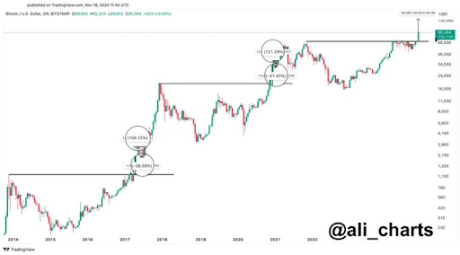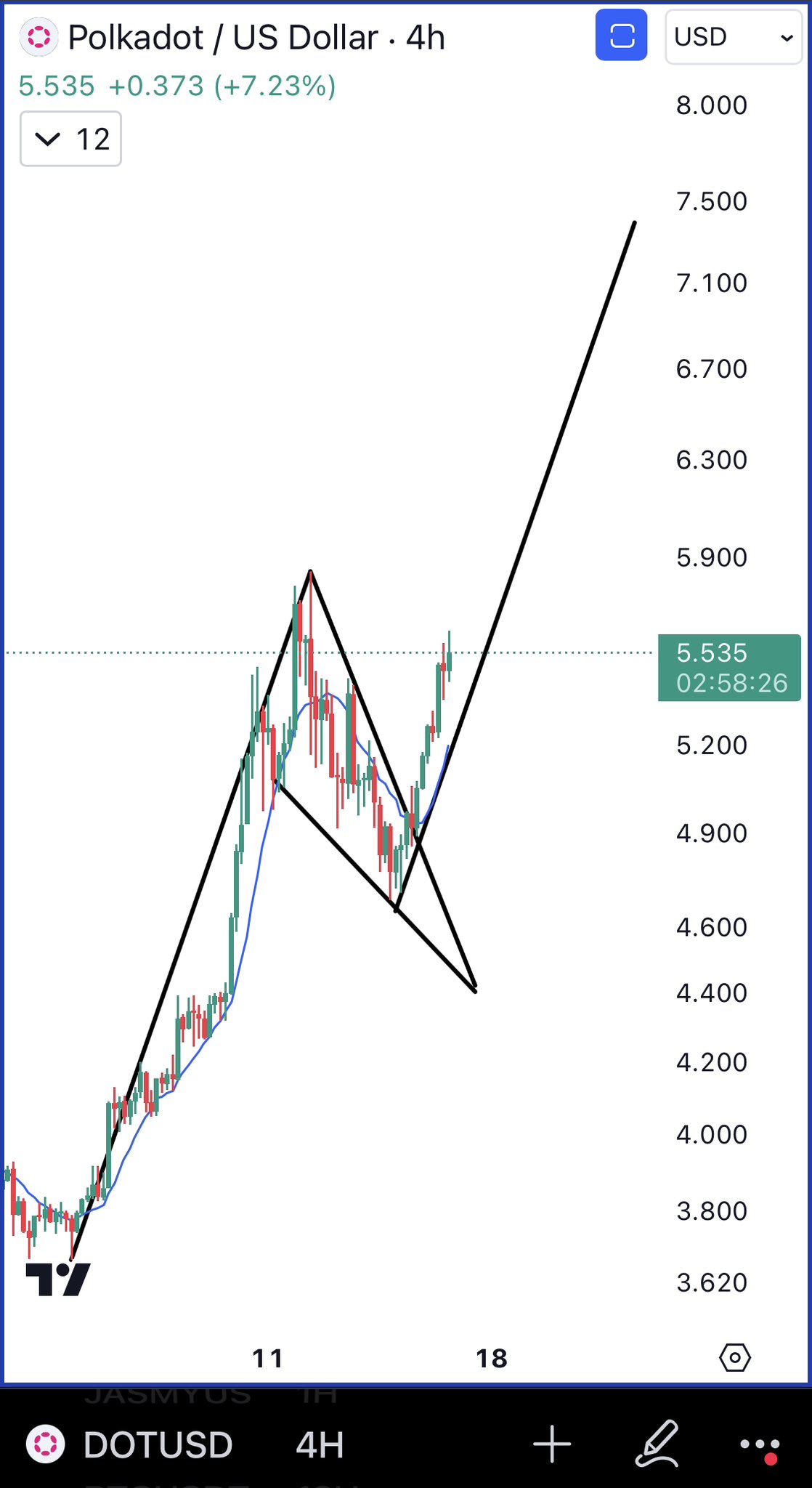Traditional financial institutions that have filed crypto ETF applications have focused on a particular market (spot or futures). However, a recent NASDAQ application suggests that the asset manager Hashdex is taking a different approach, which could be a game changer in the Ethereum ETF race.
According to the application filed with the US Securities and Exchange Commission (SEC), the stock exchange plans to list and trade shares of the Hashdex Nasdaq Ethereum ETF, which will be managed and controlled by Toroso Investments LLC.
Interestingly, the fund will hold both Ether futures contracts and Spot Ether. This move from asset manager Hashdex is novel, considering that other asset managers have either applied to offer a Spot Ether ETF or Ether futures ETF or filed applications to offer both separately. However, Hashdex wants to offer a fund holding both Ether futures contracts and a Spot Ethereum ETF.
The fund’s sponsors believe that combining Ether Futures Contracts and Spot Ether will help mitigate the risk of market manipulation (a major concern of the SEC) and provide the market with a “regulated product” that tracks Ethereum’s price. This fund will help US investors gain exposure to Spot Ether without relying on “unregulated products, offshore regulated products, or indirect strategies such as investing in publicly traded companies that hold Ether.”
In fulfillment of the requirement of having a surveillance-sharing agreement (SSA) for the proposed ETF, Nasdaq stated in the application that the Chicago Mercantile Exchange (CME) will be used to track the price of Ethereum as the CME represents a “regulated market of significant size.”
Furthermore, the fund is expected to hold physical Ether. However, the sponsors do not intend to purchase these tokens from “unregulated ether spot exchanges” but from the CME Market’s Exchange for Physical (EFP) transactions.
This move is similar to Hashdex’s application to combine a spot Bitcoin ETF with its existing Bitcoin futures ETF. Hashdex, in its application, stated that the CME will be used to track Spot Bitcoin’s price and that all Bitcoin purchases will be from the CME’s EFP.

Nasdaq’s application mentions the phrase “unregulated spot exchanges” multiple times in what seems to be a direct attack on Coinbase and the applications of other asset managers. It is worth mentioning some of the other asset managers, including Ark Invest, who have filed to offer an Ethereum-related ETF, have chosen Coinbase as their custodian.
As such, Hashdex labeling Coinbase as an “unregulated spot exchange” doesn’t seem right, as this could undoubtedly influence the SEC’s decision when dealing with these applications.
Furthermore, asset managers like BlackRock picking Coinbase for their SSA and custodian had already sparked controversy as many had stated that the SEC would not be so inclined to approve an application in which Coinbase is directly or indirectly involved since it has an ongoing lawsuit against the crypto exchange.
While many may commend Hashdex’s “innovative approach,” there is a need to be wary of how this approach could hinder the application of others and the eventual effect on the crypto industry in general.
NASDAQ Proposes To List Ethereum ETF
According to the application filed with the US Securities and Exchange Commission (SEC), the stock exchange plans to list and trade shares of the Hashdex Nasdaq Ethereum ETF, which will be managed and controlled by Toroso Investments LLC.
Interestingly, the fund will hold both Ether futures contracts and Spot Ether. This move from asset manager Hashdex is novel, considering that other asset managers have either applied to offer a Spot Ether ETF or Ether futures ETF or filed applications to offer both separately. However, Hashdex wants to offer a fund holding both Ether futures contracts and a Spot Ethereum ETF.
The fund’s sponsors believe that combining Ether Futures Contracts and Spot Ether will help mitigate the risk of market manipulation (a major concern of the SEC) and provide the market with a “regulated product” that tracks Ethereum’s price. This fund will help US investors gain exposure to Spot Ether without relying on “unregulated products, offshore regulated products, or indirect strategies such as investing in publicly traded companies that hold Ether.”
In fulfillment of the requirement of having a surveillance-sharing agreement (SSA) for the proposed ETF, Nasdaq stated in the application that the Chicago Mercantile Exchange (CME) will be used to track the price of Ethereum as the CME represents a “regulated market of significant size.”
Furthermore, the fund is expected to hold physical Ether. However, the sponsors do not intend to purchase these tokens from “unregulated ether spot exchanges” but from the CME Market’s Exchange for Physical (EFP) transactions.
This move is similar to Hashdex’s application to combine a spot Bitcoin ETF with its existing Bitcoin futures ETF. Hashdex, in its application, stated that the CME will be used to track Spot Bitcoin’s price and that all Bitcoin purchases will be from the CME’s EFP.
Hashdex Throwing Other Asset Managers Under The Bus?
Nasdaq’s application mentions the phrase “unregulated spot exchanges” multiple times in what seems to be a direct attack on Coinbase and the applications of other asset managers. It is worth mentioning some of the other asset managers, including Ark Invest, who have filed to offer an Ethereum-related ETF, have chosen Coinbase as their custodian.
As such, Hashdex labeling Coinbase as an “unregulated spot exchange” doesn’t seem right, as this could undoubtedly influence the SEC’s decision when dealing with these applications.
Furthermore, asset managers like BlackRock picking Coinbase for their SSA and custodian had already sparked controversy as many had stated that the SEC would not be so inclined to approve an application in which Coinbase is directly or indirectly involved since it has an ongoing lawsuit against the crypto exchange.
While many may commend Hashdex’s “innovative approach,” there is a need to be wary of how this approach could hinder the application of others and the eventual effect on the crypto industry in general.







